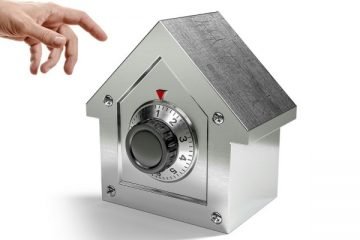
Financial fraud is a widespread problem. It’s also big business. According to NexisLexis Risk Solutions, Americans businesses on average spend $2.66 to combat every dollar of fraud. This dynamic also points to why white-collar crimes are so attractive. Many companies simply can’t afford chasing after every incidence.
The issue of financial fraud is only getting worse. According to one industry report, white-collar crimes internationally cost over £3 trillion, or roughly $3.9 trillion. While forensic accountants and certified fraud examiners are available to investigate the worst cases, their services are expensive. That often puts them out of the reach of smaller businesses.
However, that doesn’t mean that if you own a small business, you’re doomed to accept white-collar crimes. One of the most direct ways to detect financial fraud is to search for accounting discrepancies. No matter what, every business needs to keep fiscal records. Your first line of defense is to get familiar with the numbers.
Nowadays, white-collar crimes occur anywhere and everywhere; thus, you can never stay too complacent. But diving into the every single line item of your financials can be daunting. Here are some ideas to help more quickly detect financial fraud:
Run Your Own Projections
As a manager or business owner, you should know your numbers very well. If you suspect accounting discrepancies in your company, first run a basic analysis of your cash flow: summarize what goes in, and what goes out, and your net earnings (or losses). Do this for every month.
From there, compare your projections with that of your monthly balance sheet. If nothing is going on, then your fiscal forecast and your balance sheet should match up. However, if major incidents of fraud exist, then you may see wide accounting discrepancies.
Pinpoint the months when these white-collar crimes are most notable and dig deeper there.
Voided or Returned Checks Could be Fraud
Several businesses incur voided or returned checks for a variety of reasons. Usually, these are legitimate, normal events. However, if you notice a pattern of increasing or excessive entries that involve voided or returned checks, be extra vigilant.
Voided checks or documents can result in higher than normal sales if they’re not properly cancelled out. This is where having a solid grasp on your numbers can help, allowing you to detect accounting discrepancies quicker.
Cancelled checks are another red flag if you see excessive occurrences. Once these financial documents fall into the wrong hands, you can expect trouble down the road.
Money Doesn’t Disappear
While rudimentary white-collar crimes can involve a one-time theft, the most kind of financial fraud involves recurring incidents. After all, if you can hit the same place multiple times, why not do it?
My last idea for detecting fraud is to realize that money doesn’t just disappear. All of your financial documents should “talk” to each other. The items listed on the balance sheet should match what’s on your income and expense statements.
If not, you may have a problem that warrants further investigation.
Original Article Available HERE
Accounting fraud is a major problem all around the world, I believe that these issues will eventually become less significant as technology overtakes many of the current systems
Downvoting a post can decrease pending rewards and make it less visible. Common reasons:
Submit